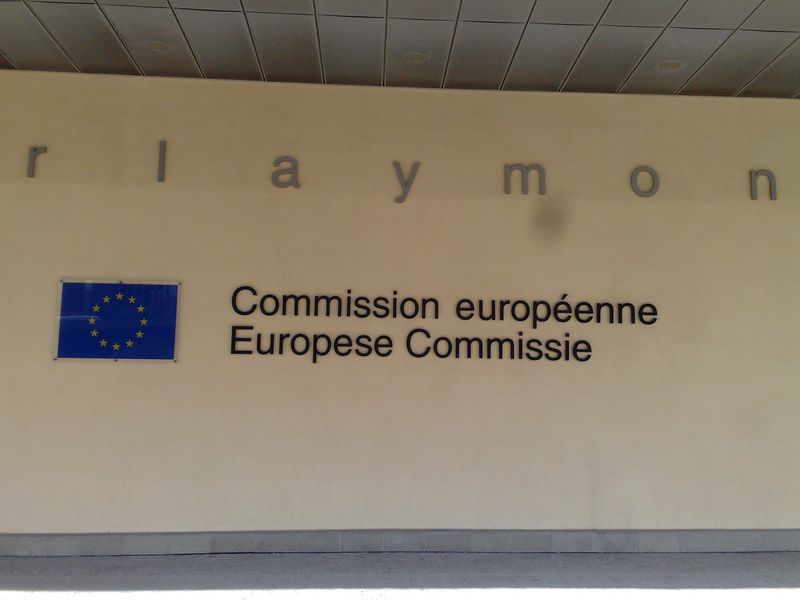The stakes of the crisis: Rien ne va plus
Ralitsa Kovacheva, March 24, 2010
 The throwing of stakes for the anti crisis measures of the government ended. The jackpot is record high and the interest - justified. The hopes for publicity, however, remained unanswered. I think that we could have even ignored the fact how delayed the attempts to tackle the crisis really are, if the new measures were discussed in public by all stakeholders - the employers, trade unions, the government and, of course - journalists. And as I started in George Lucas style, explaining what happened in the first episode, here is the chain of events in the same spirit:
The throwing of stakes for the anti crisis measures of the government ended. The jackpot is record high and the interest - justified. The hopes for publicity, however, remained unanswered. I think that we could have even ignored the fact how delayed the attempts to tackle the crisis really are, if the new measures were discussed in public by all stakeholders - the employers, trade unions, the government and, of course - journalists. And as I started in George Lucas style, explaining what happened in the first episode, here is the chain of events in the same spirit:
Episode 1: New hope
In the late afternoon of Monday, March 22, journalists received the following invitation:
The deputy prime minister and minister of finance Simeon Dyankov will discuss tomorrow, March 23rd, the government's measures in support and sustainable growth of Bulgarian business with representatives of employers. The forum will take place tomorrow, March 23rd, at 14.000 in Serdika hall, Sheraton hotel. The discussion is open for media. You're welcome!
In the meantime, in a controlled leak we learn the news for an upcoming increase of VAT to 22% (from the current 20%), which makes the government the bad guy in all news headlines and first pages of the papers.
Next is Episode 2: The empire strikes back. On Tuesday some 45 minutes before the beginning of the discussion, journalists received the following e-mail:
The meeting with the participation of the deputy prime minister and minister of finance Simeon Dyankov with representatives of employers will be open for media representatives in the first 15 minutes.
There is no word of a briefing after the discussion in the message, which usually means that the Ministry's press centre will send a press release later. Probably most of the people are not aware with the complications such a change can cause to media. Because, allowing media only in the first 15 minutes, means that only cameramen will be able to shoot the so called "coverage" of the meeting hall. The rest is endless waiting in front for some of the participants to say something after the discussion.
Most media and, particularly TV stations, which have certainly planned the topic as a lead from Monday, have probably done their utmost to be at that discussion. euinside, however, decided not to. Because the most precious thing in such a case would have been to hear the government's proposals from the source and, accordingly - the positions of participants. And through their questions the media could also take part in the discussion on behalf of the citizens, which, in fact, is their default function.
Instead, the usual happened. Media were given the role to only deliver to the people the decisions of the meeting. Here is an example of the press release of the Ministry of Finance on the measures of the government:
Minister Dyankov presented the measures which are divided into four groups - measures in support of business, financial discipline, support of the fiscal policy and support of labour and social security systems.
It might not be quite clear to you what exactly these measures are, but instead there are very curious and likewise unclear proposals in the press release:
Probably it might prove necessary one-time or temporary taxes to be introduced, some of the participants have forecast.
What taxes? Who is proposing them? It's not clear. And more:
Unreformed systems, among which pension and healthcare systems, must endure limitations.
What does this mean? That they reduce the pensions or that they remove them? And who will endure limitations for the sake of healthcare - the patients with less rights or the doctors with lower wages? Still not clear.
There was support for the idea to increase pensioning age which is a way to achieve relief of the pension system painlessly.
Really? Only few days ago the government abandoned the same idea because it caused public rebuff and replaced it with an increase of the length of service until it finally retreated from this either. So, who showed support, maybe the trade unions? Secretly, obviously, because in their public appearances they have the opposite position.
There is no chance that we could understand who proposed what, what arguments were presented and by who, who made a compromise and is the price acceptable - this remained behind the closed doors in the so called discussion. I call it like this not because there are no disputes and debates among social partners and employers' organisations. But because, after all, whatever they talk about is in the dark. And the citizens will just hear what the bill is as if in an expensive restaurant where they did not dine in.
The throwing of stakes is over. The bad thing is that even if you hit, you don't win. Because there should always be someone to pay the bill. This is the stake of the crisis.
 | © euinside
| © euinside | © euinside
| © euinside | © euinside
| © euinside